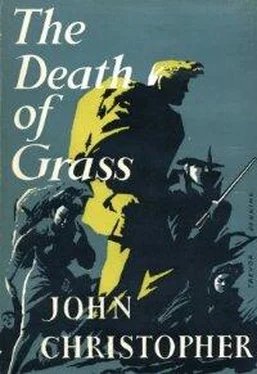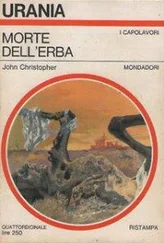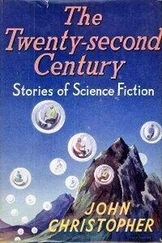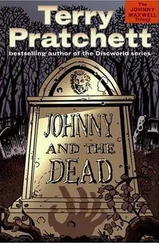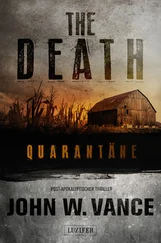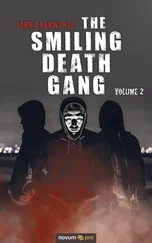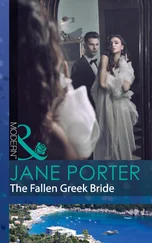“There are some ways,” Olivia said, “in which he and Steve are just about the same age.”
Steve was the Buckleys’ nine-year-old son; Roger was too devoted to him to let him go away to school. He was rather small, decidedly precocious, and capable of bouts of elemental savagery.
“But Steve will grow out of it,” Ann pointed out Roger grinned.
“If he does, he’s no son of mine!”
The children came home for half-term, and the Custances and the Buckleys drove down to the sea for the week-end. It was their custom to hire a caravan between them; the caravan, towed down by one car and back by the other, housed the four adults, while the three children slept in a tent close by.
They had good weather for the trip, and Saturday morning found them lying on sun-warmed shingle, within sound and sight of the sea. The children interspersed this with bathing or with crab-hunting along the shore. Of the adults, John and the two women were happy enough to lie in the sun. Roger, more restless by nature, first assisted the children and then lay about in evident and increasing frustration.
When Roger had looked at his watch several times, John said: “All right. Let’s go and get changed.”
“All right, what?” Ann asked. “What are you getting changed for? You weren’t proposing to do the cooking, were you?”
“Roger’s been tripping over his tongue for the last half-hour,” John said. “I think I’d better take him for a run down to the village. They’ll be open by now.”
They were open half an hour ago,” Roger said. “We’ll take your car.”
“Lunch at one,” Olivia said. “And not kept for latecomers.”
“Don’t worry.”
With glasses in front of them, Roger said:
“That’s better. The seaside always makes me thirsty. Must be the salt in the air.”
John drank from his glass, and put it down again.
“You’re a bit jumpy, Rodge. I noticed it yesterday. Something bothering you?”
They sat in the bar parlour. The door was open, and they could look out on to a gravelled patch on this side of the road, and a wide stretch of green beyond it The air was warm and mild.
“This is the weather the cuckoo likes,” Roger quoted. “When they sit outside the ‘Traveller’s Rest,’ and maids come forth sprig-muslin drest, and citizens dream of the South and West. And so do I. Jumpy? Perhaps I am.”
“Anything I can lend a hand with?”
Roger studied him for a moment. “The first duty of a Public Relations Officer,” he said, “is loyalty, the second is discretion, and having a loud mouth with a ready tongue runs a poor third. My trouble is that I always keep my fingers crossed when I pledge loyalty and discretion to anyone who isn’t a personal friend.”
“What’s up?”
“If you were me,” Roger said, “you wouldn’t tell, honesty being one of your stumbling-blocks. So I can tell you to keep it under your hat. Not even Ann yet. I haven’t said anything to Olivia.”
“If it’s that important,” John said, “perhaps you’d better not say anything to me.”
“Frankly, I think they would have been wiser not to keep it dark, but that’s not the point either. All I’m concerned with is that nothing that gets out can be traced back to me. It will get out—that’s certain.”
“Now I’m curious,” John said.
Roger emptied his glass, waited for John to do the same, and took them both over to the bar for refilling. When he had brought them back, he drank lengthily before saying anything further.
He said: “Remember Isotope 717?”
“The stuff they sprayed the rice with?”
“Yes. There were two schools of thought about tackling that virus. One wanted to find something that would kill the virus; the other thought the best line was breeding a virus-resistant rice strain. The second obviously required more time, and so got less attention. Then the people on the first tack {37} 37 first tack: the first idea for a solution
came up with 717, found it overwhelmingly effective against the virus, and rushed it into action.”
“It did kill the virus,” John said. “I’ve seen the pictures of it.”
“From what I’ve heard, viruses are funny brutes. Now, if they’d found a virus-resistant rice, that would have solved the problem properly. You can almost certainly find a resistant strain of anything, if you look hard enough or work on a large enough scale.”
John looked at him. “Go on.”
“Apparently, it was a complex virus. They’ve identified at least five phases by now. When they came up with 717 they had found four phases, and 717 killed them all. They discovered number five when they found they hadn’t wiped the virus out after all.”
“But in that case…”
“Chung-Li,” said Roger, “is well ahead on points.”
John said: “You mean, there’s still a trace of the virus active in the fields? It can’t be more than a trace, considering how effective 717 was.”
“Only a trace,” Roger said. “Of course, we might have been lucky. Phase 5 might have been slow where the other four were fast movers. From what I hear, though, it spreads quite as fast as the original.”
John said slowly: “So we’re back where we started. Or not quite where we started. After all, if they found something to cope with the first four phases they should be able to lick {38} 38 lick: defeat (slang)
the fifth.”
“That’s what I tell myself,” Roger said. “There’s just the other thing that’s unsettling.”
“Well?”
“Phase 5 was masked by the others before 717 got to work. I don’t know how this business applies, but the stronger virus strains somehow kept it inactive. When 717 removed them, it was able to go ahead and show its teeth. It differs from its big brothers in one important respect.”
John waited; Roger took a draught of beer.
Roger went on: “The appetite of the Chung-Li virus was for the tribe of Oryzae, of the family of Gramineae. Phase 5 is rather less discriminating. It thrives on all the Gramineae.”
“Gramineae!”
Roger smiled, not very happily. “I’ve only picked up the jargon recently myself. Gramineae means grasses—all the grasses.”
John thought of David. ‘We’ve been lucky.’ “Grasses,” he said,”—that includes wheat.”
“Wheat, oats, barley, rye—that’s a starter. Then meat, dairy foods, poultry. In a couple of years’ time we’ll be living on fish and chips—if we can get the fat to fry them in.”
They’ll find an answer to it.”
“Yes,” Roger said, “of course they will. They found an answer to the original virus, didn’t they? I wonder in what directions Phase 6 will extend its range—to potatoes, maybe?”
John had a thought: “If they’re keeping it quiet—I take it this is on an international level—might it not be because they’re reasonably sure an answer is already in the bag?”
That’s one way of looking at it. My own feeling was that they might be waiting until they have got the machine-guns into position.”
“Machine-guns?”
They’ve got to be ready,” Roger said, “for the second two hundred million.”
“It can’t come to that. Not with all the world’s resources working on it right from the beginning. After all, if the Chinese had had the sense to call in help…”
“We’re a brilliant race,” Roger observed. “We found out how to use coal and oil, and when they showed the first signs of running out we got ready to hop on the nuclear energy wagon {39} 39 hop on the wagon: do something because it is popular (usually bandwagon)
. The mind boggles at man’s progress in the last hundred years. If I were a Martian {40} 40 Martian: supposed inhabitant of the planet Mars
, I wouldn’t take odds even of a thousand to one on intellect of that kind being defeated by a little thing like a virus. Don’t think I’m not an optimist, but I like to hedge my bets {41} 41 hedge my bets: play safe, make sure that I am covered against all risks
even when the odds look good.”
Читать дальше
